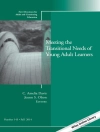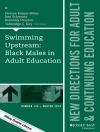Currents such as epistemological and social constructivism, postmodernism, and certain forms of multiculturalism that had become fashionable within science education circles in the last decades lost sight of critical inquiry as the core aim of education. In this book we develop an account of education that places critical inquiry at the core of education in general and science education in particular. Since science constitutes the paradigm example of critical inquiry, we explain the nature of science, paying particular attention to scientific methodology and scientific modeling and at the same time showing their relevance in the science classroom. We defend a universalist, rationalist, and objectivist account of science against epistemological and social constructivist views, postmodernist approaches and epistemic multiculturalist accounts.
Inhaltsverzeichnis
Belief, Learning and Education.- Knowledge, Education and Critical Inquiry.- Plato on Knowledge, and a Socratic Model of Inquiry.- Some Problems for Theories of Knowledge and Their Resolution.- Varieties of Constructivism and the Inaccessibility of Reality Argument.- The Aims of Science and Critical Inquiry.- Naive Inductivism as a Methodology in Science.- Hypothetico-Deductivism as a Methodology in Science.- Bayesian Methodology in Science.- Scientific Realism and Modelling Reality.- Sociology Versus Rationality in Science.- Lyotard, Postmodernism and Education.- Multiculturalism and Science Education.- Politics of Science and Science Education.












